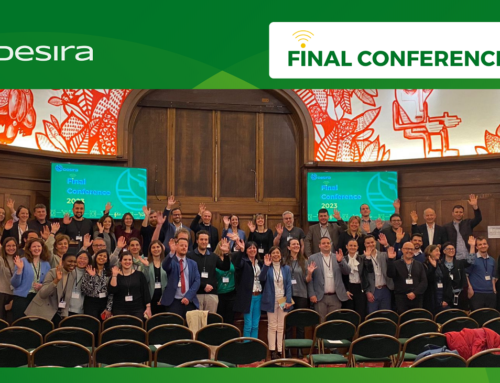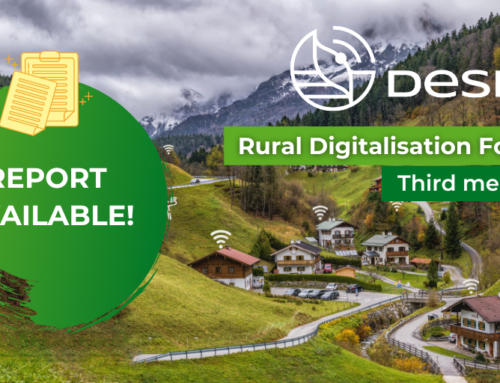Agricultural, forestry, and rural areas are undergoing a process of digital transformation. Digitalisation can have positive impacts on sustainability in terms of greater environmental control, and community prosperity. At the same time, it can also have disruptive effects, with the marginalisation of actors that cannot cope with the change. When designing and developing ICT systems for those areas, ICT experts should carefully consider the specific socio-economic characteristics, so that potential positive effects can be maximised and negative impacts mitigated.
Researchers from DESIRA have recently published the article Drivers, barriers and impacts of digitalisation in rural areas from the viewpoint of experts. This work is based on 30 cross-disciplinary experts’ interviews covering the digitalisation of rural areas, agriculture, and forestry. The aim is in providing a reference catalogue of drivers, barriers and potential impacts associated with the introduction of ICT solutions in those domains. Solutions with a high potential of success are those lowering running costs, reducing manual labour, and supporting compliance with norms and regulations by alleviating bureaucratic burdens. Anyway, limited connectivity must be always considered as a limiting factor, as well as distrust towards solutions that may cause marginalisation. Furthermore, there is concern about solutions that may cause a loss of hands-on expertise because of automation.In this perspective, this work can be seen as a reference baseline to better understand the needs of those areas. The results can be used to support domain analysis before the development of novel solutions, or provide hints for fit-gap analyses to adapt existing ones.
Find here the full paper.






